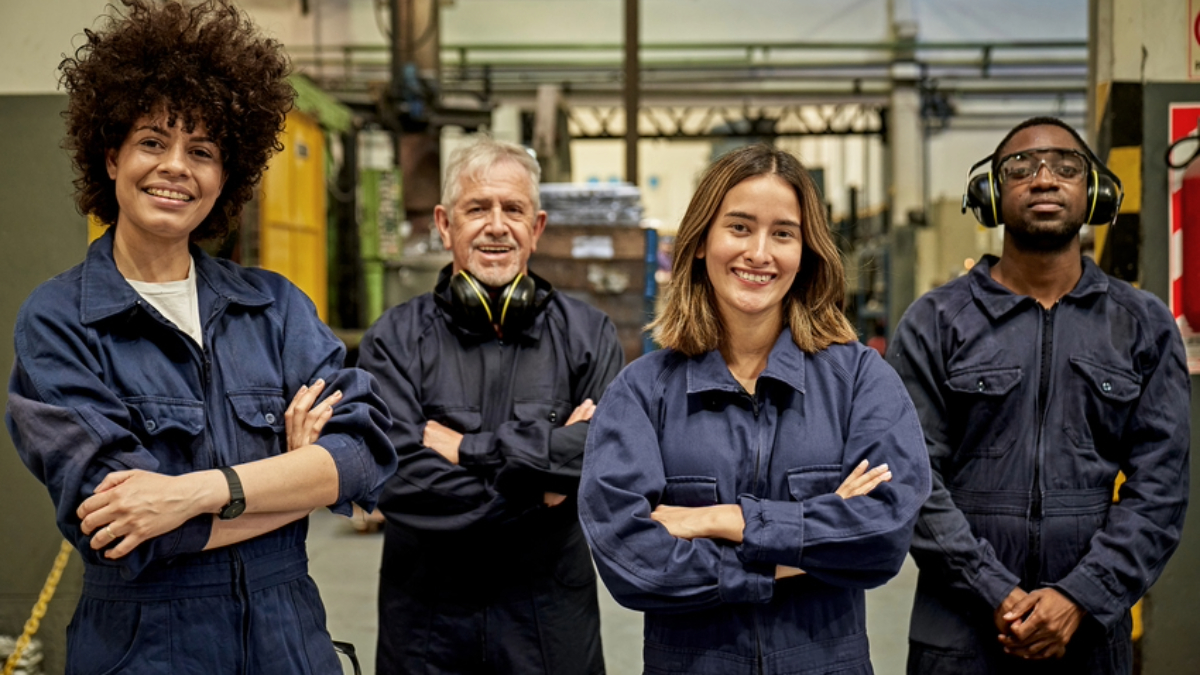
What makes a good team?
Why do some teams perform effortlessly while others tread water? pme Academy Director Darina Doubravova explains why looking at the big picture is crucial. Discover the four most important levers and practical tips for immediate cohesion and success.
A team full of professionals—and yet things aren't running smoothly?
Does this sound familiar? A team full of talented, committed professionals, but the results are lacking. The atmosphere is tense, projects come to nothing. It is tempting to look for the cause in individual people, but that is usually too simplistic. A recent McKinsey study refutes the myth that talent alone is enough:
"A team made up of 'superstars' is not inherently a great team—in fact, it can lead to poorer performance."McKinsey, When teams get healthier, the whole organization benefits
The real cause rarely lies with individual members. It lies in the system. Darina Doubravova, head of the pme Academy, guides you through the key factors that turn a group of lone wolves into a real dream team.
What does a systemic approach mean for teams?
The first and most important step toward improvement is a change of perspective. Don't view teams as isolated islands, but as part of a dynamic organizational ecosystem.
"Neither individual team members nor teams can be viewed in isolation. They are always part of a complex ecosystem in constant interaction with other teams and the dynamics of the entire organization," explains Darina Doubravova, head of the pme Academy. This holistic view is crucial to truly understanding and sustainably improving collaboration within the company.
That's why she recommends that every team consciously seek out exchanges with other teams and openly ask questions such as: "What are your expectations of us? How do you perceive our tasks and contributions?" Through this dialogue, both sides can reveal their perspectives, compare them, and adjust them if necessary—a process that promotes mutual understanding as a genuine change of perspective.
Only when a team recognizes this systemic context and actively shapes it can it unleash its full potential and contribute effectively to overall success. "I have noticed in many companies that departments often complain about a lack of appreciation from others. However, it is always worthwhile to reflect self-critically: How do I actually assess the work of other teams?"
Appreciation is not a one-way street, but arises only through mutual exchange and understanding.
"When teams think outside the box and consider the systemic context, it not only creates greater appreciation, but also better collaboration. This turns a good working relationship into a real success factor for the entire company," says Doudbravova.
The 4 key factors for top performance
Research shows that team success is not a matter of chance. It is based on specific behaviors.
"Our research shows that four drivers in particular have the greatest impact: trust, communication, innovative thinking, and decision-making."McKinsey, When teams get healthier, the whole organization benefits
1. Trust & Psychological Safety: The Foundation
Without trust, everything is meaningless. It is the basis on which team members dare to take risks and admit mistakes. The measurable effects are enormous:
Practical tips for immediate implementation:
- Personal check-ins: Start meetings with a brief, personal round.
- Mistakes as learning opportunities: Establish a culture in which mistakes are discussed openly.
- Bereliable: Keepyour promises and communicate proactively.
Our research found that teams that scored above average on trust were 3.3 times more efficient and 5.1 times more likely to deliver results than teams with below-average trust.McKinsey, When teams get healthier, the whole organization benefits
2. Open communication & feedback: The driving force
Clear, open, and respectful communication is the engine that drives the team forward and resolves conflicts before they escalate.
Practical tips for immediate implementation:
- Establish rules: Clarify together when which tool is used and who needs to be informed when.
- Introduce feedback routines: Use simple methods such as 5-finger feedback.
- Active listening: Practice really understanding what the other person is saying.
"Work on your attitude toward feedback: Constructive feedback is a gift and opens up opportunities for improvement." Darina Doubravova, Head of the pme Academy
3. Innovative thinking & diversity: The fuel
Teams that are open to new ideas and value different perspectives are more creative and adaptable.
Practical tips for immediate implementation:
- Create space for creativity: Set aside fixed times for brainstorming sessions without immediate evaluation.
- Consciously leverage diversity: Actively seek out the opinions of team members from different backgrounds.
- Encourage experimentation: Create a culture where trying new things is encouraged.

4. Clear decision-making: The steering wheel
Unclear decision-making processes lead to frustration and stagnation. Efficient teams know who makes decisions, when, and how.
Practical tips for immediate implementation:
- Clarify roles: Clarify within the team who makes the decisions, who advises, who makes suggestions, and who implements the tasks.
- Quality over perfection: Make decisions quickly instead of waiting for the perfect solution.
- Learn from mistakes: Work together to analyze why a decision did not lead to the desired result—without assigning blame.
"It's not just about clarifying roles within the team, but also considering what expectations are placed on individual team members from outside. The topic of 'breaking down silos' is also becoming increasingly important."
Darina Doubravova, Head of the pme Academy
5. Sustainability and the outside perspective
Self-reflection is good, but often an internal perspective is not enough. Teams quickly develop blind spots when it comes to their own weaknesses.
Managers often assess the situation more positively than the rest of the team. An external stimulus can be crucial in identifying the real areas that need work. External team development is particularly useful when a new team is starting out, major changes are imminent, or conflicts are hindering cooperation. An external coach can help identify entrenched patterns and show the team new ways forward.
Teams are often unaware of their most significant gaps and may have shared blind spots, leading them to prioritize the wrong things.McKinsey, When teams get healthier, the whole organization benefits
Conclusion
A high-performing team is the result of a continuous process that begins with understanding the big picture. By recognizing their role in the organizational ecosystem and actively working on the pillars of trust, communication, innovation, and decision-making, teams lay the foundation for sustainable success.
FAQ: Improving team performance
How can I build psychological safety within the team?
Create space for a culture of error tolerance, regular feedback, and open personal check-ins.
What is meant by a systemic approach?
Teams are viewed as part of a dynamic overall organizational system. Goal: Recognize patterns and promote appreciative collaboration.
When should external team development be used?
Whenever new teams are formed, major changes are imminent, or conflicts have become entrenched.
Further links:






